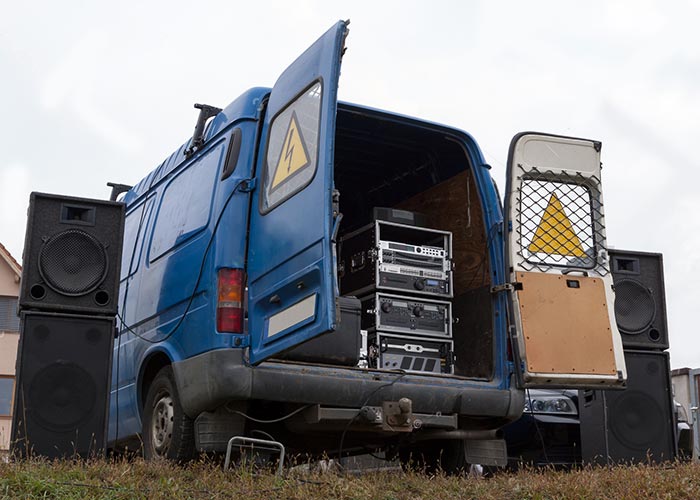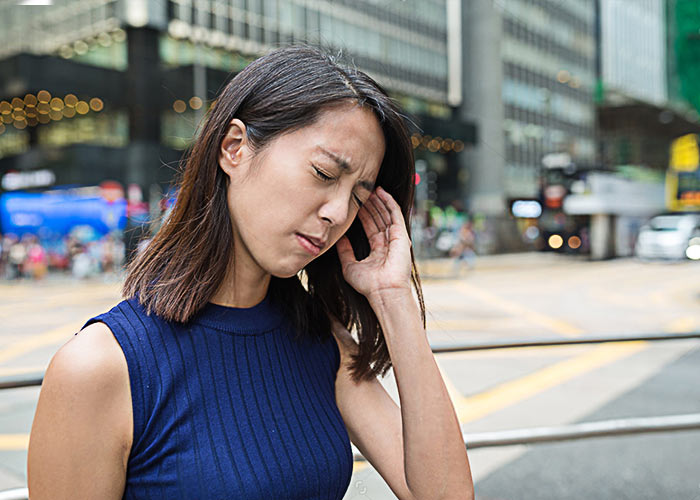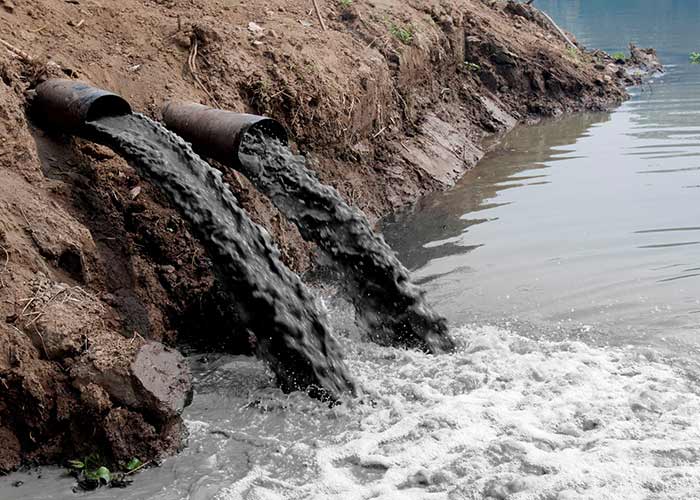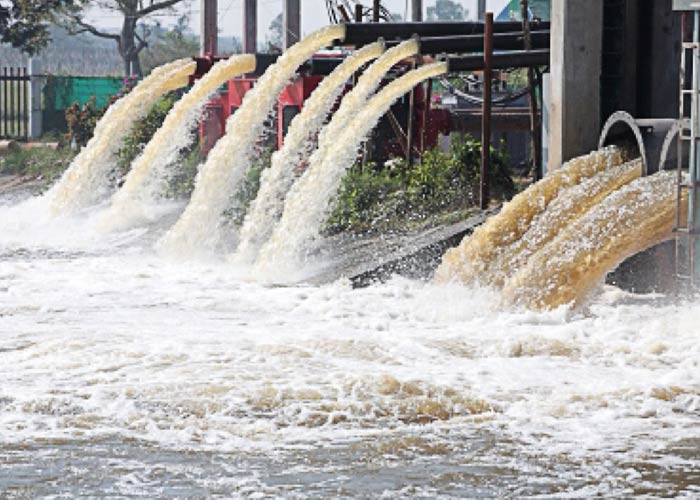Noise pollution has become a major problem of modern times. Due to increasing urbanization, transportation (rail, air, and road) and mining, the problem of noise pollution is assuming serious dimensions. Virtually, noise has become an inevitable evil of growth and development.
Road congestion, the noise of vehicles, maddening sounds of horn all create such chaos that it seems that your ears will burst. Moreover, factory sirens, jarring sound of the running of machines and film songs ringing loud on loudspeakers too contribute in the increase in noise pollution. For the last some decades, the rise and pollution has drawn the attention of governments all over the world. Industrialization, modern means of transportation, population growth, urbanization and increasing human activities are taking their toll on the human and animal habitat.
Today, man is living amongst deafening noises. The noise produced by motor vehicles, trains, jet aircraft, and sound amplifier devices installed at temple-mosque, synagogue and housing societies is having an adverse effects on human health. Hoarse voices emanate from factories; various businesses hit our ears and make our mind turbulent. Modern means of transport such as bus, car, truck, motorcycle, train, aircraft, etc fill the air with all kinds of sounds. Nowadays homes are very close to one another in cities, increasing the amount of domestic noise. The noise of radio, television and other sound-broadcasting devices is also growing day by day. Different kinds of sounds are occurring around us, giving rise to mental stress, deafness and health problems. This issue requires urgent attention now.
Following are the major sources of noise pollution:
- Industries
Almost all industrial areas are affected by noise pollution and a major reason for this is the sound generated by machines. Boilers and turbines installed in thermal power plants generate considerable noise in their surroundings. Most industries are established in urban areas, where there is higher intensity of noise pollution.
- Means of transport
Various forms of transport are also a major cause of noise pollution. All these means produce sound in extremely high volumes. The pollution by these modes spreads across a large area. The total number of vehicles in India in 1950 was 30 million, whereas the total number of registered motor vehicles reached approx. 210 million in March 2015. In Lucknow alone, more than one lakh vehicles are registered and their number is increasing by 5 to 10 percent annually. Considering the above facts, one can only imagine the enormity of rising air pollution along with noise pollution.
- Entertainment
Man uses various means for his entertainment such as TV, radio, music systems, etc but these instruments cause unbridled noise. Loudspeakers and DJs used in wedding engagement programs, religious events, etc, greatly contribute towards noise pollution.
- Construction
Use of different machines and tools in various construction works leads to increased noise pollution with adverse effects on the health of construction workers as well as people living in the surroundings.
- Fireworks
The firework at display on various occasions in our country is also a source of noise. Firework is a common item during various fairs, festivals, and cultural/marriage ceremonies. Crackers are burst to express the joy of India winning a cricket match. But apart from air pollution due to these fireworks, the intensity of their sound is so high that it gives rise to problems such as noise pollution.
During Diwali, noise pollution levels due to fireworks increase many times in cities. As crackers are burst over fixed standard hearing limits, many people suffer damage in their ears and some also develop allergy. In cities, generally, bursting crackers of more than 125 decibels of sound is banned but despite various measures adopted by the Pollution Control Board, the level of noise is increased every time during festivals.
Other reasons
Exchange of words held among populations gathered at various social, religious functions, political rallies, and meetings of trade unions produce a deafening din. Similarly, intolerable noise is generated at market places, schools, colleges, bus stands, and railway stations due to the huge population present there. Similarly, several other smaller causes give rise to noise pollution. For instance, less wide roads, the lack of alternative arrangements for those who sell goods on the street, traffic in the peak hour traffic, etc.
Due to growing population of cities and towns, lack of proper congregation sites as well great cost entailed in booking them on rent, people often occupy public road or pathway in front of the house and turn it in the venue of their event. This does not only block but even shuts the whole passage. Whereas under the Article 19 (1) (d) of the Constitution, citizens have the right to walk on uninterrupted barrier-free road. Obviously, organising such events also leads to noise pollution. As events take place late at night, the sleep of the residents of that area is bound to get disturbed. The situation becomes even more difficult for those who are mentally or physically unable to bear loud sounds. During night-long Jagrans, week-long religious programmes and all kinds of other entertainment events, standard sound limits are not followed. Students, in particular, suffer the consequences most as their studies are interrupted. Noise at the time of examination poses a serious threat to their future. Often such programs are patronized by local MLA/MP, so, the local authorities do not take any action despite complaints.
Noise Pollution and Law
According to rules, any kind of noise pollution is prohibited that emanates from scooter, car, bus horns, DJ, loudspeaker, marriage band, or musical instruments played during religious functions held in open space from ten at night until six in the morning. During this period, no one is allowed to produce any kind of noise that exceeds more than 75 decibels (up to one metre from the source of sound).
But law enforcement agencies have often been found to be grossly wanting in enforcing the law of the land. Parties and religious functions go at high pitch throughout the night, causing restlessness in the community. But if the people are determined they can force police action in such violations of the prescribed limits of sound and the time beyond which no noise is allowed to take place. In fact, the violators of these rules can be imposed a fine of Rs one lakh or five years’ jail, or both, may be sentenced together under the Environmental Protection Act, 1986 , besides Section 290 and 291 of the IPC. Thus, the problem of noise pollution needs to be dealt with in right earnest.
More in Noise Pollution
Diseases caused by Noise pollution







